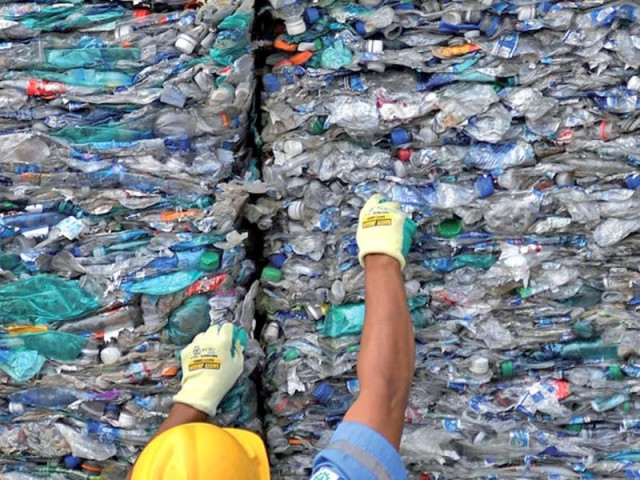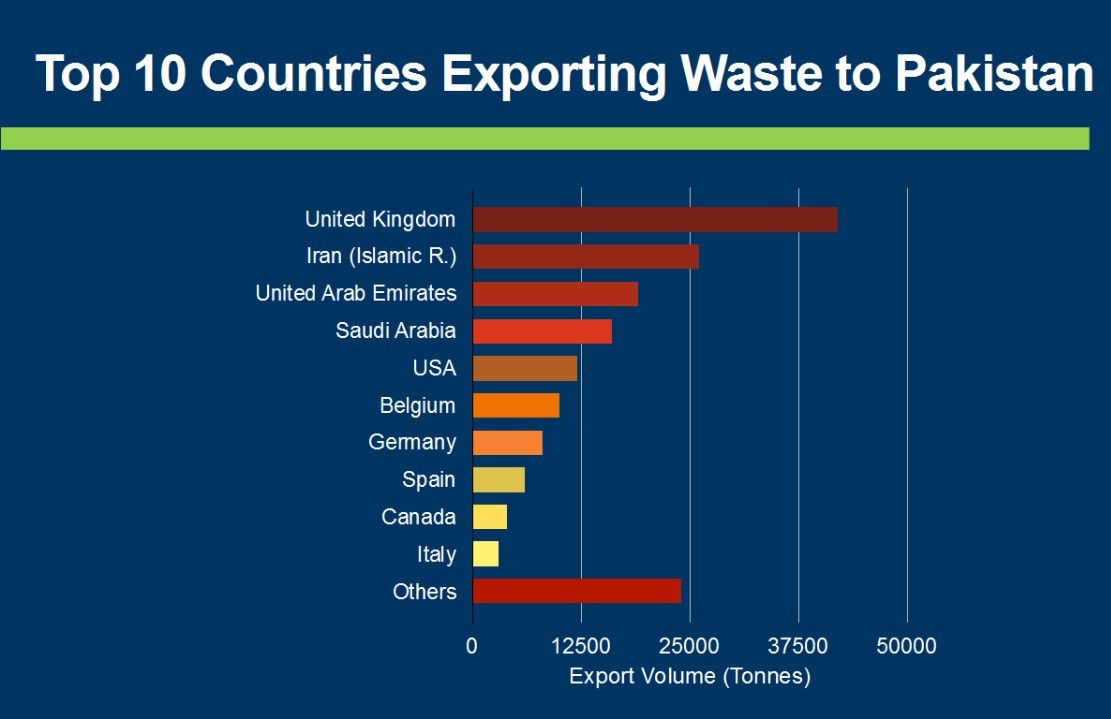Pakistan top destination of waste import
Friendly states dumping hazardous waste in country

The Senate Standing Committee on Climate Change on Thursday was left baffled when it learnt that the United Kingdom, Iran, United Arab Emirates, Saudi Arabia, United States of America, Belgium, Germany, Spain, Canada and Italy, were the top-10 countries, respectively, exporting waste to Pakistan.
The committee was shocked to see the names of some of the friendly countries as well as those often found voicing concerns on climate change issues among the top-10 countries dumping their waste in Pakistan, questioning why no one ever objected to “imported waste”.
The words “imported waste” drew amusing responses from the committee members as the political landscape of the country has been echoing with words like “imported government” since former premier Imran Khan’s ouster as he blamed foreign powers for his removal and installation of the incumbent rulers.

“Why Pakistan never objected to imported waste,” asked a committee member while further asking why embassies, ministries, relevant departments and federal and provincial governments never tried to stop it.
The names of the countries as well as the waste being exported by them to Pakistan had come as a revelation to the majority senators as they admitted they were not even aware of fact that Pakistan was a dumping destination of the world’s most advanced countries.
“Why have we been importing waste from abroad,” some of the senators wondered while further asking how long has it been going on and if Pakistan has the capacity to deal with such waste. “Why don’t we export waste,” some others wondered while amusingly saying the streets were full of toxic and non-toxic waste yet it wasn’t being exported to the top-10 countries in question.
“Imported waste Na Manzoor,” PTI’s Senator Faisal Javed giggled, saying PTI has been raising the slogan since March – a tacit reference to ex-PM’s narrative of allegedly imposing an imported government on the country. “Increase exports as well as waste export,” Javed added.
Read more: Plastic waste – an uphill battle
“Let’s export the opposing parties,” Senator Taj Haider quipped as other members laughed in agreement. Amid amusing comments, the committee learnt that the most of the imported waste was being dumped in the sea and what was left of it was being dumped in major cities when the goods are transported there.
The committee members expressed extreme displeasure over a massive import of hazardous waste onshore through unsafe practices leaving public health and ecology in jeopardy.
Last Tuesday, the federal cabinet was told that Pakistan annually produces 30 million tonnes of waste in addition to annually importing 80,000 tonnage of bundled waste from around the world, which has been causing environmental and health problems as well as contaminating the surface water and groundwater supplies.
Meanwhile, the committee chairperson Senator Seemee Ezdi appreciated Pakistan’s first-ever National Hazardous Waste Management Policy, 2022, drafted by the Ministry of Climate Change and approved by the federal cabinet. The chair recommended that the ministry be provided adequate resources to ensure capacity beef up for better implementation of the policy.
Minister for Climate Change Senator Sherry Rehman said it was a milestone policy and a long due legislation, saying the policy will set a direction, saying all provinces have agreed in principle to implement the legislation which was part of the GSP Plus implementation
She suggested penalties on the origin of hazardous waste allowing such cargo without confirming safe transport mechanisms on the other side. It attributed to the minister as saying that China has shut the import of hazardous waste and due to which, it had increased in Pakistan as no objection certificates (NOCs) were being issued to the recycling industry.
“This system is in many south Asian countries which must be regulated and classified to ensure safe management of toxic waste for reuse processes,” she was further attributed.



















COMMENTS
Comments are moderated and generally will be posted if they are on-topic and not abusive.
For more information, please see our Comments FAQ